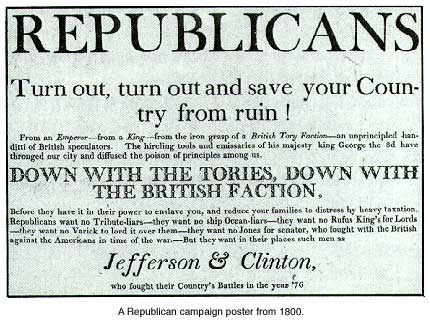
After a bloodless but ugly campaign in which candidates and influential supporters on both sides used the press, often anonymously, as a forum to fire slanderous volleys at each other, the then-laborious and confusing process of voting began in April 1800. Individual states scheduled elections at different times and although Jefferson and Burr ran on the same ticket, as president and vice president respectively, the Constitution still demanded votes for each individual to be counted separately. As a result, by the end of January 1801, Jefferson and Burr emerged tied at 73 electoral votes apiece. Adams came in third at 65 votes.
This unintended result sent the final vote to the House of Representatives. Sticklers in the Federalist-controlled House of Representatives insisted on following the Constitution’s flawed rules and refused to elect Jefferson and Burr together on the same ticket. The highly influential Federalist Alexander Hamilton, who mistrusted Jefferson but hated Burr more, persuaded the House to vote against Burr, whom he called the most unfit man for the office of president. (This accusation and others led Burr to challenge Hamilton to a duel in 1804 that resulted in Hamilton’s death.) Two weeks before the scheduled inauguration, Jefferson emerged victorious and Burr was confirmed as his vice president.
A contingent of sword-bearing soldiers escorted the new president to his inauguration on March 4, 1801, illustrating the contentious nature of the election and the victors’ fear of reprisal. In his inaugural address, Jefferson sought to heal political differences by graciously declaring We are all Republicans, we are all Federalists.
As president, Jefferson made some concessions to his opponents, including taking Hamilton’s advice to strengthen the American Navy. In 1801, Jefferson sent naval squadrons and Marines to suppress Barbary piracy against American shipping. He reduced the national debt by one-third, acquired the Louisiana Territory, and his sponsorship of the Lewis and Clark expedition opened the west to exploration and settlement. Jefferson’s first term ended in relative stability and prosperity, and in 1804 he was overwhelmingly elected to a second term.
The flawed voting system that was so problematic in the election of 1800 was later improved by the 12th Amendment, which was ratified in 1804.
Source: The History Channel




Be the first to comment